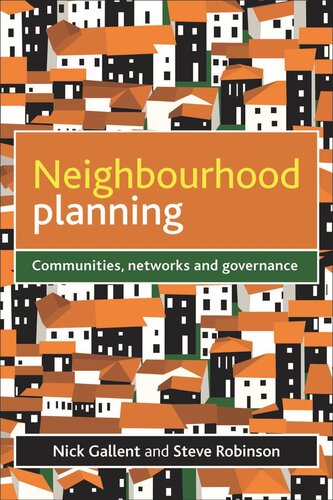

Most ebook files are in PDF format, so you can easily read them using various software such as Foxit Reader or directly on the Google Chrome browser.
Some ebook files are released by publishers in other formats such as .awz, .mobi, .epub, .fb2, etc. You may need to install specific software to read these formats on mobile/PC, such as Calibre.
Please read the tutorial at this link: https://ebookbell.com/faq
We offer FREE conversion to the popular formats you request; however, this may take some time. Therefore, right after payment, please email us, and we will try to provide the service as quickly as possible.
For some exceptional file formats or broken links (if any), please refrain from opening any disputes. Instead, email us first, and we will try to assist within a maximum of 6 hours.
EbookBell Team

4.4
102 reviewsNeighbourhood planning offers a critical analysis of community-based planning activity in England, framed within a broader view of collaborative rationality and its limits. From the recent experience of drawing up parish plans, and attempts to connect these to formal policy frameworks, it identifies lessons for future planning at the neighbourhood scale. It is not a manual on community planning practice, nor does it provide a formula for producing parish or neighbourhood plans. But in the context of the latest 'localism' agenda in England it, first, examines the potential contribution of neighbourhood planning to building a 'collaborative democracy' and, second, asks how much movement towards genuine local partnership, and consensus around development decisions, can be achieved through the rescaling of 'statutory' planning as opposed to expending greater effort locally on building stronger relationships, and generating trust, between 'people and planning'